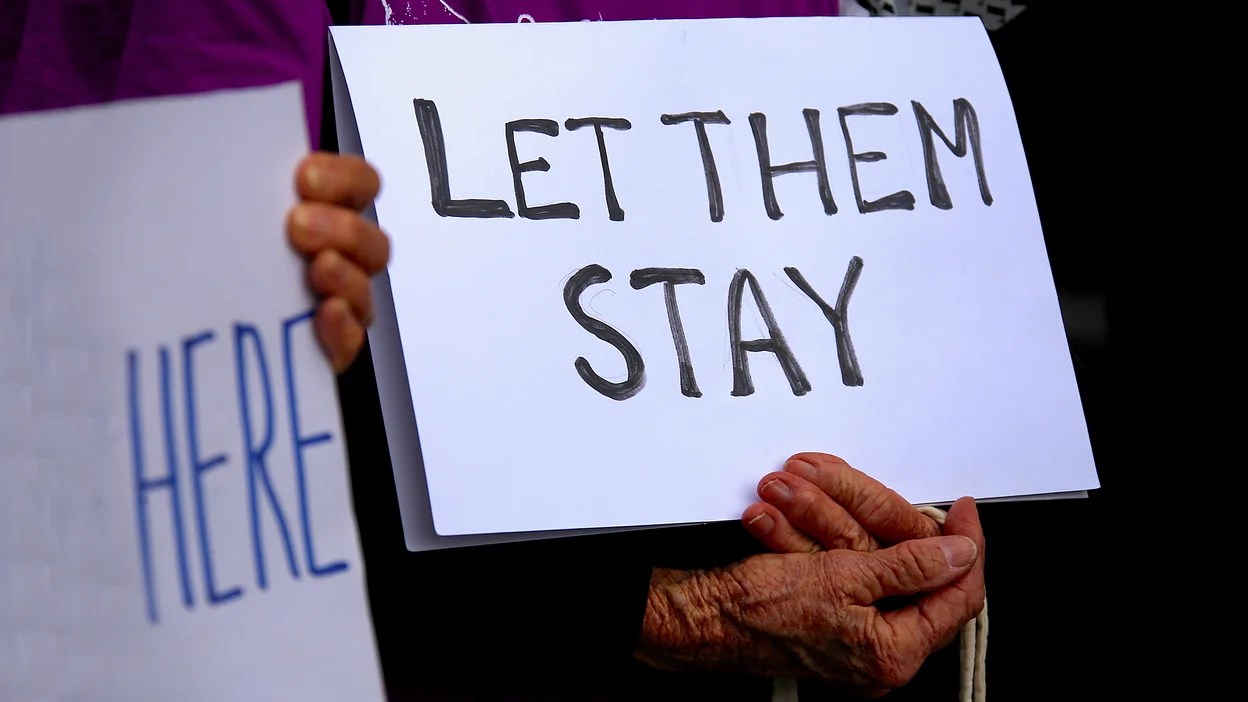Offshore detention survivors decry UK's Rwanda scheme
Asylum seekers who suffered under a similar scheme in Australia are condemning the deportation of migrants to Rwanda.
-

Offshore detention survivors decry UK's Rwanda scheme.
Britain's plan to send migrants and asylum seekers to Rwanda has left survivors of a similar scheme in Australia perplexed as to why the "failed" policy that destroyed their lives is being renewed elsewhere.
Abdul Aziz Muhamat, a Sudan-born refugee, was imprisoned by Australian authorities in a small tropical island camp off the coast of Papua New Guinea for more than six years, concealed from full legal and public oversight.
"The simplest way to describe daily life on Manus Island is there's no life," Muhamat explained. "It's worse than a prison," he told AFP. "If you cry, no one will listen. If you shout, no one will come."
Muhamat's detention was part of Australia's "Pacific Solution", which saw thousands of people, who tried to enter the country by boat, relocated to offshore camps on Manus and Nauru.
They were processed, given identification numbers, and forbidden from ever settling permanently in Australia. Many remained in the camps for years, in conditions described by human rights organizations as "hellish".
Read next: UK cancels Rwanda deportation plan after EU ruling
"They never could have got away with the conditions in those camps if they had been in Australia," said Nick McKim, a Greens senator who visited Manus five times before being refused entry. "I have no hesitation in describing what happened in those camps as torture."
Australia's system has been cut up piece by piece after massive taxpayer expense, 14 detainee fatalities, a spate of suicide attempts (some by inmates as young as five), and at least six referrals to the International Criminal Court. About 100 people remained on Nauru as early last month.
Britain is giving the notion of fresh life by planning to transfer asylum seekers to the landlocked African country of Rwanda.
The Australian solution
Behrouz Boochani, a former Manus inmate turned author, has encouraged the British public to oppose plans to "follow Australia's horribly inhumane refugee policy."
However, UK Prime Minister Boris Johnson, who has received guidance from several notable Australian political strategists, has presented a familiar reason for the necessity to proceed: deterrence.
Johnson, like his Australian counterparts, has argued that the policy will persuade would-be migrants not to embark on risky maritime voyages on sometimes decrepit and overcrowded vessels.
Data, according to Australian legal expert Madeline Gleeson of the Kaldor Centre, reveal that offshore imprisonment does not dissuade asylum seekers.
According to Gleeson, the UK program most closely resembles Australia's strategy between August 2012 and July 2013, when only a small number of asylum seekers were sent to offshore camps. "In that period, the number of people arriving by boat continued to rise to levels never before seen in Australia," she said.
Muhamat, who attempted to reach Australia by boat three times from Indonesia, losing five of his closest friends in the process, is more straightforward.
Read next: UK government defends policy to send asylum seekers to Rwanda
The policy "achieved nothing", he said. "When you're running to save your life. You don't think about the tragedy you will encounter on your journey." "This is really one of the points that people don't understand," he added. "What option do people have? They have only one option; they will continue risking their life."
Muhamat, who now lives in Switzerland, believes the proposal will just commit individuals to a "failing" system and ruin Britain's international standing. "It will destroy the reputation of an entire country," he said. "The image of the UK will be replaced with an image of human misery."

 4 Min Read
4 Min Read








